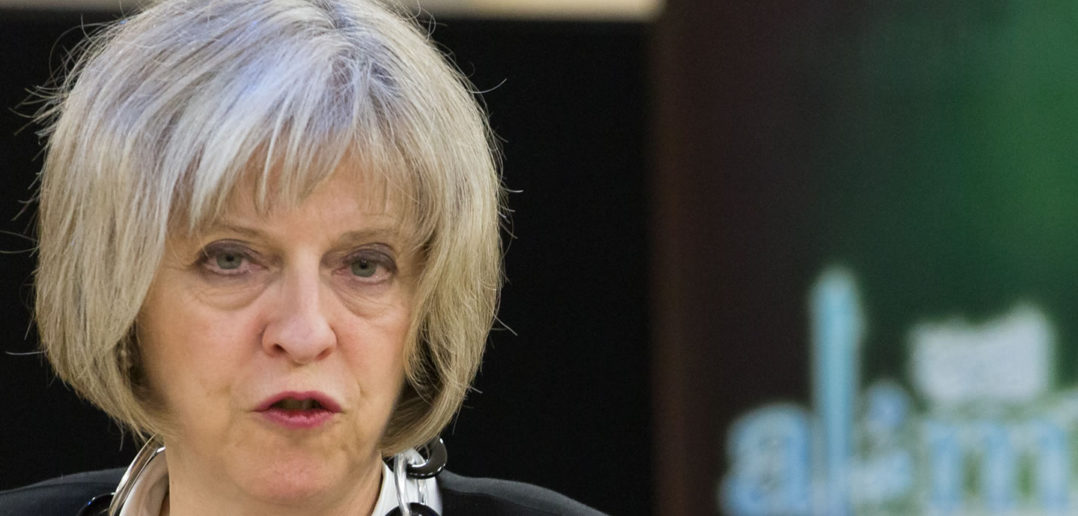In the months since Theresa May first uttered the now-famous phrase “Brexit means Brexit,” expectations that the new government would move full steam ahead with taking Britain out of the EU have given way to a seeming cascade of setbacks. The Supreme Court’s ruling requiring a parliamentary vote on Brexit bogged May’s government down in an unforeseen constitutional mire at the precise moment the new PM was setting about courting post-Brexit trade partners. If May was hoping to drown out the rising chorus of discontent with positive headlines from this month’s trade mission to India, she was rudely awoken upon arrival.
That the Prime Minister’s first efforts to sound out future trade agreements failed to get off to a great start is not necessarily surprising, but it does show that Britain’s re-emergence in the world of international trade will be bumpier than first thought- much to the delight of Remainers. In her talks with Indian premier Narendra Modi, the Indians made perfectly clear that her government’s immigration policies were going an obstacle to any future free trade agreement between the two countries. India, which sends tens of thousands of students to Britain every year, is particularly unhappy about the inclusion of foreign students in the net migration figures May now wants to cap. It was May herself, as home secretary, who stated that she wanted international students to leave the day they graduate in order to reduce Britain’s migrant population.
Thanks in large part to her policies, Indian students were already ditching British universities in favour of competitors in America and elsewhere before the Brexit vote even happened—robbing the country of valuable market share in the process. Brexit plans have trumpeted India as the banner opportunity for British business abroad, but Modi and the Indian press made things perfectly clear: May can’t have both deepening trade ties and total, uncompromising control over immigration. Of course, being asked to walk back her visa stance is hardly the only barrier the PM faces. Even with a change of heart, May would still need to answer the concern amongst Indian business that the post-Brexit UK no longer makes sense as a gateway to the EU. Instead of thinking of how to broaden their presence in Britain, many are instead considering moving their European headquarters to the Continent.
That India turned out to be a mixed bag at a time domestic challenges are mounting is severely problematic for the government. If the High Court ruling wasn’t enough of a setback, an embarrassing memo leaked to the Times exposed a lack of a common strategy for withdrawal from the EU. Critically, the document revealed that up to 30,000 new civil servants may have to be hired to wade through more than 500 projects on the government’s to-do list. From a public relations perspective, Downing Street needs a warm international response to British trade offers to buoy its narrative that it has matters under control. In New Delhi, at least, it failed to materialize.
Fortunately, there are still bright spots on the post-Brexit horizon. In an op-ed in the Telegraph op-ed, Bahrain’s ambassador to the UK signalled an open door for Britain if it looks for a trade deal with the Gulf Cooperation Council (GCC), a $1.3 trillion market which includes not only Bahrain but also Saudi Arabia, Kuwait, the UAE, Qatar, and Oman. Bahraini-UK trade was worth £432 million in 2015, with more than 500 British brands and 350 British-Bahraini business partnerships in operation in the kingdom. That is however dwarfed by the $17.5 billion of joint investments between the UK and Saudi Arabia, the largest economy in the GCC. Conveniently, much of Saudi Arabia’s massive reform and privatisation programme is designed to open up precisely the kind of trade and investment opportunities May needs to find for British businesses and investors.
Recent events in America, however, might yet spell the best news for May. While much uncertainty follows Donald Trump’s election, one thing that does seem clear is that the Transatlantic Trade and Investment Partnership between the United States and the European Union is dead in the water. Fortunately for Britain, President-elect Trump’s opposition to all-embracing trade deals might not apply to the UK, given the much smaller stakes for the US and the fact that a single-country agreement between two open economies would be far easier to negotiate.
If Nigel Farage is to believed, Trump also seems to have a soft spot for Britain that stems from his business ventures (namely his golf resort) and matrilineal roots in Scotland. Trump was also, memorably, a big supporter of Brexit. He likened his own election to “Brexit plus, plus, plus”. Incredibly, whereas Theresa May found herself waiting in line behind countries like Ireland, Turkey, and Russia before receiving a phone call from the President-elect, the first British politician to meet him after the vote was none other than Farage. Trying to make up for lost ground, the government is now laying down the groundwork for a state visit by the soon-to-be American leader to the UK.
Although it doesn’t fit with diplomatic protocol, the warm relationship between Farage and Trump might signal a special place for the UK in what’s shaping up to be a highly unorthodox new administration. If Theresa May and Parliament struggled with how to respond to Trump the candidate, Trump the President might be a golden opportunity to secure the kind of trade agreement that would bolster the struggling Brexit process and even strengthen Britain’s hand in EU negotiations. Progress on a deal with the US would also do much to relieve the mounting pressure on Downing Street from British business, which has one clear message for the PM: to make a success of Brexit, get cracking.




